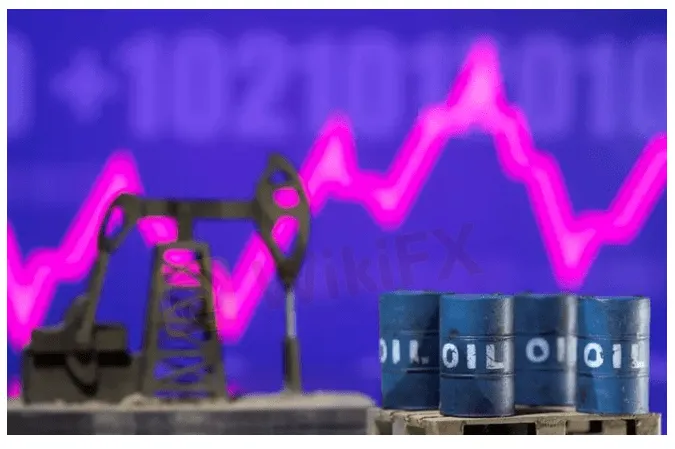Abstract:Asian stocks on Thursday eased after this week‘s global rally, following Wall Street’s overnight stumble, while oil dropped sharply as the United States weighed a massive draw from its reserves to rein in surging fuel prices.

Asian shares fell and oil prices plunged following news that the United States was considering releasing up to 180 million barrels from its strategic petroleum reserve as part of a move to lower fuel prices.
Brent crude futures were down 3.7% at $109.28, while U.S. West Texas Intermediate futures were down 4.7% at $102.76.
Oil prices have surged since Russia invaded Ukraine in late February and the United States and allies responded with hefty sanctions on Russia, the second-largest exporter of crude.
European stocks were mixed but held near the highs they reached earlier in the week when investor sentiment became more positive about peace talks in Ukraine.
That optimism was petering out as Ukraine prepared for new Russian attacks, ahead of peace talks resuming on Friday.
Asian shares fell after Chinese PMI data showed manufacturing and services activity contracted in March.
At 0825 GMT, the MSCI World Equity index was down 0.2% on the day, while Europes STOXX 600 was down 0.1%, just below the one-month high it hit on Tuesday.
The STOXX 600 was on track for a 5.8% drop in the first quarter of 2022, its biggest quarterly fall since it plunged 23% in the first quarter of 2020.
Peter McCallum, rates strategist at Mizuho said that investors were still cautious about Ukraine, with central banks facing a “stagflation environment”.
“It tends to be difficult for risk assets to perform with that backdrop but I think there‘s some sort of sense of relief at the moment amongst investors … it’s more tail risks being priced out than any good news being priced in,” he said.
A recent sell-off in U.S. Treasuries paused and the 10-year Treasury yield edged lower, at 2.3416%, compared to its three-year high of 2.557% reached on Monday.
A key part of the yield curve steepened on Wednesday, unwinding recent moves betting that aggressive U.S. Federal Reserve policy tightening could send the worlds largest economy into recession as it tries to curb soaring inflation.
European government bond yields were mostly down by around 3-4 basis points, as falling oil prices helped counter the recent sell-off in bonds. The German 10-year yield was set for its biggest monthly rise since 1996.
Following Wednesdays data showing surging inflation in Germany and Spain, readings on Thursday showed French inflation hit 5.1%. Italian inflation data is due at 0900 GMT.
“With Russia‘s invasion having lasted for over 5 weeks now, we’re increasingly seeing the impact reflected in the official inflation numbers,” Deutsche Bank strategist Jim Reid wrote in a note to clients.
Mizuho‘s McCallum said he expected aggregate euro zone inflation data on Friday to be above economists’ expectations, but that a high reading was priced into the market.
The euro was down 0.2% at $1.1135, having been boosted earlier in the week by hopes for peace in Ukraine.
The dollar was little changed against the yen, with the pair at 121.935, having stabilised after the yen fell to its lowest since 2015 on Monday on expectations that the Bank of Japan would be markedly more dovish than the Fed.
Commodity-linked currencies such as the Norwegian crown were down.
Gold edged lower, but was still set for its biggest quarterly rise since September 2020.
Bitcoin was little changed at around $47,132.










